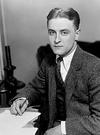Authors Flashcards
(203 cards)

Boris Pasternak Old

Hans Christian Andersen

Jean-Paul Sartre

Phillipa Gregory
Born: 9 January 1954 (age 65 years), Nairobi, Kenya
Movies and TV shows: The Other Boleyn Girl, The White Queen, The Last Days of Anne Boleyn, Mary Hays in Love

Truman Capote
Truman Garcia Capote was an American novelist, short story writer, screenwriter, playwright, and actor. Several of his short stories, novels, and plays have been praised as literary classics, including the novella Breakfast at Tiffany’s and the true crime novel In Cold Blood, which he labeled a “nonfiction novel”.

A. A. Milne

A. E. Housman

Aesop

Agatha Christie

Albert Camus

Aldous Huxley
Brave New World
Island
Point Counter Point
The Doors of Perception
The Perennial Philosophy
The Devils of Loudun
Aleksandr Pushkin
Alexander Pope

Alfred Lord Tennyson, 1st Baron Tennyson

Alice Walker

Alistair McLean

Anne Rice
Anne Rice[2] (born Howard Allen Frances O’Brien, October 4, 1941) is an American author of gothic fiction, Christian literature, and erotic literature. She is best known for her series of novels The Vampire Chronicles, which revolve around the central character Lestat. Books from The Vampire Chronicles were the subject of two film adaptations—Interview with the Vampire (1994) and Queen of the Damned (2002).

John Anthony Burgess Wilson,
25 February 1917 – 22 November 1993), who published under the name Anthony Burgess, was an English writer and composer.
dystopian satire A Clockwork Orange remains his best-known novel.[ Burgess produced numerous other novels, including the Enderby quartet, and Earthly Powers. He wrote librettos and screenplays, including the 1977 TV mini-series Jesus of Nazareth.

Anton Chekhov

Arthur C Clarke

Arthur Conan Doyle

Arthur Hailey

Arundhati Roy
Suzanna Arundhati Roy (born 24 November 1961)[1] is an Indian author best known for her novel The God of Small Things (1997), which won the Man Booker Prize for Fiction in 1997

Astrid Lindgren
Swedish: née Ericsson; 14 November 1907 – 28 January 2002) was a Swedish writer of fiction and screenplays.[3] She is best known for several children’s book series, featuring Pippi Longstocking,








































































































